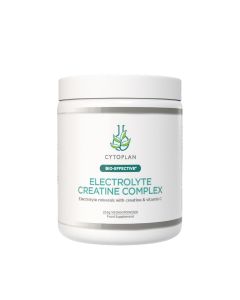Why prolonged stress and anxiety can be damaging for your health
At a most fundamental level and in the short term, stress is important for energising both our body and brain, preparing us for "fight or flight" and boosting performance.
However, overwhelming, or unremitting stress can increase many unwanted psychological and physiological effects and can raise the risk of many health conditions.
How the stress response works
Our response to stress, whether it be psychological or physiological in nature, is mediated via our neurological and hormonal systems. Stress sensed in the brain leads to the release of hormones that ultimately cause the adrenal glands to secrete the two main stress hormones - adrenaline and cortisol.
Adrenaline
Adrenaline is a relatively short-acting hormone that, among other things, speeds the heart, raises blood pressure, and increases blood levels of glucose and fatty acids (providing ready fuel for energy).
Cortisol
Cortisol is a longer-acting hormone, and has similar and supportive actions to adrenaline, but in excess in the long term can be damaging to the body.
During periods of high anxiety and stress our adrenal glands will be working overtime to produce these hormones and, in doing so will be using an excess of nutrients, such as vitamin C, magnesium and the B-vitamins.
The impact of stress hormones
When in excess, stress hormones can negatively affect our nervous system, digestion, reproduction, immune system, and brain health. This can manifest in a range of issues such as sleep disturbances, fatigue, low mood, increased susceptibility to infections, hormonal imbalances, weight gain and so on.
What can trigger our bodies stress response?
In modern society our stressors are often not survival based and can come in many forms such as:
- financial worries
- work or relationship problems
- health concerns
- busy schedules
They are often ongoing too.
Other things our bodies may perceive as stress which are less obvious:
- pain
- over-exercise
- nutrient deficiencies
- blood sugar imbalances
- anti-nutrients (caffeine and alcohol)
- food intolerances
- toxins
- our own thoughts and perceptions.
Whatever the reason, supporting a healthy stress response by ensuring your body has all the nutrients it needs is one of the most important things you can do to ensure optimal health.
About our stress and anxiety range
Our range has been made to support the many areas of health that can be affected by stress. We have products for supporting adrenal gland function, aiding energy production, helping your body adapt to stress, as well as natural mood enhancers such as 5-HTP.
Supporting your adrenal health is key to managing stress and anxiety, and in our Adrenal Support supplement you’ll find an exclusive Cytoplan formulation. Our nutritional experts combined a unique blend of herbs, phytonutrients and other key nutrients that collectively support adrenal gland function and work to restore your adrenal health.
We also provide an excellent range of additional products across the range which includes key vitamins for stress such as vitamin C, and minerals such as magnesium, both of which are rapidly depleted during times of high anxiety. These are available in either Food State or Wholefood forms to ensure optimal absorption and retention. We have magnesium in the bisglycinate form, where the mineral is bound to the amino acid glycine, which itself can support sleep and relaxation.
We also have a high potency B-complex product to help support energy and supportive herbs such as Ashwagandha to help the body to adapt to stress. In addition, you can find a range of key amino acids, such as L-theanine, to help calm and relax your body.
What are the best vitamins and minerals for stress?
Vitamin C is found and used in large amounts in the adrenal glands and is rapidly depleted during times of stress. It is also immune supportive and an antioxidant.
B vitamins are needed to support increased requirements from the heart, lungs, and muscles during stress and are needed to produce our adrenal hormones. Poor adrenal function can give rise to symptoms such as low energy and fatigue and so the B vitamins have many uses as they contribute to the release of energy from foods, the reduction of tiredness and fatigue, and help to support normal psychological function.
B5 (Pantothenic acid) contributes to the synthesis and metabolism of steroid hormones and may therefore be used by the adrenal glands in high quantities in times of stress. It also contributes to mental performance and the reduction of tiredness and fatigue.
Magnesium can become depleted in times of stress but is required for a healthy stress response. Magnesium contributes to the reduction of tiredness and fatigue, to the normal functioning of the nervous system, muscle function and psychological function and can help to calm and relax the nervous system.
Iodine - contributes to normal: energy-yielding metabolism, production of thyroid hormones and thyroid function. It also contributes to normal cognitive function and functioning of the nervous system. The adrenal and thyroid glands work closely together.
What are the best supplements for stress?
The best supplements for stress are ones that support the many areas of health affected by it. It’s important to address adrenal health, the depletion of key nutrients, energy production and helping your body to adapt to stress.
Vitamin C - our vitamin C products are available in either Food State or Wholefood forms to ensure optimal absorption and retention. We also offer a high potency vitamin C with added bioflavonoids, which naturally accompany vitamin C in food.
Magnesium- our Biofood Magnesium is a gentle and effective Food State form of magnesium. Magnesium Bisglycinate is highly absorbable and great for its calming effect.
Adaptogenic Herbs such as Ashwagandha and Rhodiola are recommended. Our Ashwagandha has been certified organic by The Soil Association and is whole herb with a full spectrum of active compounds.
B vitamins - we offer a high potency B-complex product providing key B vitamins in their most active forms to help support energy and adrenal gland function. We also provide Pantothenic Acid (B5) as a standalone product.
Amino acids - L-theanine is an amino acid found in tea leaves and supports the production of alpha brain waves which are associated with a state of relaxation. L-taurine is abundant in many tissues including the heart, nerve cells and skeletal muscle.
Adrenal Support - is a unique blend of herbs and phytonutrients that collectively support adrenal gland function and work to restore adrenal health. It also contains other key nutrients including iodine and pantothenic acid.
5-HTP Plus - this food supplement contains 5-HTP; a precursor to serotonin, with added magnesium and vitamin B6 which are nutrients necessary for the conversion of 5-HTP to serotonin, our feel-good hormone.
What are natural remedies for stress and tension?
In addition to ensuring you are obtaining all the nutrients needed to support a healthy stress response there are other natural remedies that can help:
Nature - spending time in nature can help to reduce stress and improve mood.
Breathing - certain types of breathing can stimulate "the relaxation response".
Meditation - this age-old practice has become one of the most popular ways to relieve stress and can help to slow racing minds.
Gentle exercise - such as walking and yoga.
Journalling - our thoughts, perceptions, and beliefs can trigger the stress response or equally the relaxation response. Completing a daily gratitude and happiness journal may be helpful.
Herbs - there are a range of natural herbs that may be useful during times of stress but legislation prevents us from writing more about them and how they help, but there is an abundance of literature online on the Materia medica of herbal products.
Diet - ensuring you are eating a healthy balanced diet with plenty of fresh wholefoods and essential fatty acids is important to maintain a balance of important nutrients to support a healthy stress response. A key first step is balancing blood sugar as spikes in blood sugar cause stress hormones to flood the body.





